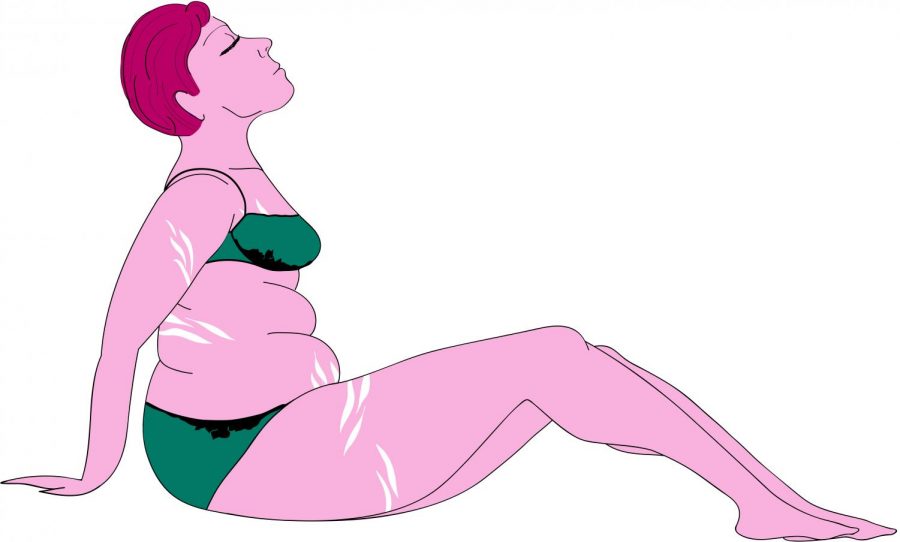OPINION: Fatness doesn’t need permission
OPINION: Fatness doesn’t need permission
October 1, 2018
Tess Holliday, a size-22 model, will grace the October cover of Cosmopolitan UK. Noted commentator Piers Morgan criticized Holliday Aug. 30 after the cover’s preview release, stating the magazine’s choice to feature her is dangerous because it glorifies obesity.
This charge is routinely leveraged against fat women who have the gall to be seen and to love their body, especially on social media. To this I respond: What is so wrong with glorifying a woman’s body, even if it is called “obese”? Why shouldn’t fat women celebrate the bodies we live in?
Critics of the fat acceptance movement say this is an issue of health, ignoring that current health sciences such as the BMI scale are flawed, according to a March 8 Business Insider article.
These critics have turned “fat” into the opposite of healthy, setting thinness as the standard of health. Many fat women think the right counter-argument to the charge of glorifying obesity is showing that it’s possible to be fat and healthy. Mainstream body positivity holds up “good” fat women who do yoga, eat salads, wear fashionable clothes and don’t speak too loudly. They are almost always branded plus-sized instead of obese because thin people only say “fat” when they mean it as an insult.
It pushes down those who refuse to be acceptably fat: the butch, the queer, the loud, the disabled. Health is used as a proxy for goodness. Fat is used as a synonym for lazy, uneducated and ugly, while healthy is used as a synonym for motivated, productive and beautiful.
Health is not a virtue, and fat people do not need the permission of thin people to exist as we are.
Unscientific diets, yoga, green smoothies posted on Instagram and Kim Kardashian’s appetite-suppressing lollipops should not be pushed onto everyone, and much of the time trying to force your body into a mold it doesn’t fit into comes at the cost of both physical and mental health. Many fad diets encourage excessive calorie restriction and obsession with appearance. The obsession that everyone should strive to be healthy is one that is inherently ableist, classist and controlling.
Personally, I live with chronic pain and an anxiety disorder. If I were to do yoga or cycling, I likely would not be able to walk the next day. An attempt to begin an intense diet can launch me into obsessive cycles of self-hatred and destruction. This is the case for many who live with both visible and invisible illnesses. Not everyone’s bodies have the same capabilities, and holding all individuals to the same standards creates divisions where we should aim for acceptance.
Whether an individual lives with a chronic illness or not, they should not be expected to alter their diet or exercise routine if they don’t want to. And no one has the right to tell others how to manage their health and their body.
The choice to dedicate your life to physical fitness and health is wonderful if that is what sustains your spirit, but everyone must navigate their own relationship with food and their body for themselves. We deserve to do this without pressure, shame and fear.
Living a healthy lifestyle by any definition does not make an individual more good, moral or worthy of love and public recognition than those who are not healthy. We are good and moral by the content of our character, and we are worthy of love and acceptance because we are human, not because we are thin.








